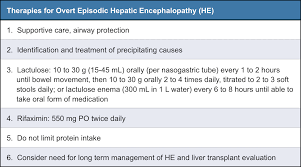A nurse notes that a client's serum potassium level is 5.9 mEq/L. The nurse interprets this as an expected finding in the client with:
Diabetic ketoacidosis
Heart failure being treated with furosemide
Addison disease
Cushing disease
The Correct Answer is C
Choice A rationale: Typically associated with potassium depletion rather than elevated levels.
Choice B rationale: Furosemide, a loop diuretic, can cause potassium depletion leading to hypokalemia, but it might also cause transient elevations in potassium levels initially. Choice C rationale: Addison disease can cause hyperkalemia, or high potassium, due to decreased renal excretion of potassium and increased retention of sodium and water.
Choice D rationale: Cushing disease can cause hypokalemia, or low potassium, due to increased renal excretion of potassium and decreased reabsorption of sodium and water.
Nursing Test Bank
Naxlex Comprehensive Predictor Exams
Related Questions
Correct Answer is D
Explanation
Choice A rationale: Used in the management of hepatic encephalopathy by reducing the production of ammonia in the gut.
Choice B rationale: Often prescribed to reduce ammonia levels in hepatic encephalopathy by promoting bowel movements and aiding ammonia excretion. Choice C rationale: Typically used in managing ascites by reducing fluid retention and treating edema.
Choice D rationale: This medication can potentially worsen hepatic encephalopathy due to its sedative effects and impact on mental function. It's crucial to clarify its use in a patient with hepatic encephalopathy.

Correct Answer is A
Explanation
Choice A rationale: These lab findings, particularly concentrated urine (high specific gravity) and hyponatremia, are consistent with SIADH, where excessive ADH secretion leads to water retention and dilutional hyponatremia.
Choice B rationale: While it can affect sodium levels, Cushing's syndrome typically results in hypernatremia or normal sodium levels rather than hyponatremia.
Choice C rationale: Usually presents with hyponatremia but not specifically with high urine specific gravity or hematocrit.
Choice D rationale: DI is associated with high serum sodium and low urine specific gravity due to excessive excretion of dilute urine.
Whether you are a student looking to ace your exams or a practicing nurse seeking to enhance your expertise , our nursing education contents will empower you with the confidence and competence to make a difference in the lives of patients and become a respected leader in the healthcare field.
Visit Naxlex, invest in your future and unlock endless possibilities with our unparalleled nursing education contents today
Report Wrong Answer on the Current Question
Do you disagree with the answer? If yes, what is your expected answer? Explain.
Kindly be descriptive with the issue you are facing.
